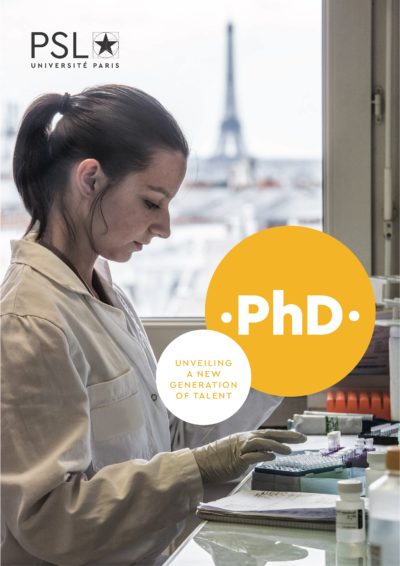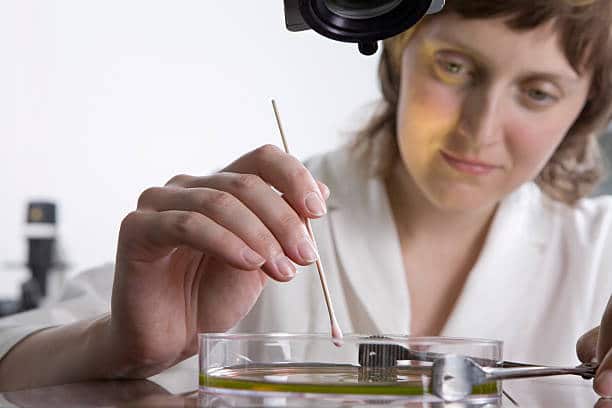
Study in France
Bonjour, mon ami! Welcome to the rich, cultural landscape of France. Find yourself dazzled by the cuisine, the dancing, the art, and the music – all while you learn the French language. Thousands of people take their holiday in France every year to enjoy the wine and the relaxed lifestyle, if only for a short period of time. But, why not extend that holiday, and learn something while you’re at it?
These days, universities and colleges in France are starting to offer plenty of English-taught degree options for Master’s and Bachelor’s students all over the world. From its long history in science, literature, art, and history, France has plenty of exciting options for international students. But French education is also about innovation and you are going to find many English-taught degrees related to Business, Science and Tech as well.
So, when you’re dreaming of walking dreamily around the The River Seine, or making your home in the Château de Versailles, then why not study abroad in France?
Why Study in France?
- Very affordable tuition fees
If you come from the European Union (EU) or the European Economic Area (EEA), you won’t pay more than 800 EUR per academic year; this applies to degrees at all levels (Bachelor’s, Master’s, PhD).
In some cases, non-EU/EEA students enjoy the same benefits, but in others they do pay higher tuition. Even so, studying in France still remains less expensive than in other countries, such as the USA, the UK, Canada, Australia, etc.
- The number of English-taught degrees is growing
To attract more international students, both public and private universities in France have been increasing the number of English-taught study programmes in their academic offer.
There are over 1,500 courses taught in the English language, and the number is growing every year.
- Excellent opportunities to learn or improve your French
Although English remains the primary international language in many sectors, you shouldn’t overlook French. It is the third most common business language and the official language in over 30 countries worldwide.
Remember that people who speak at least two foreign languages have better chances to get higher salaries or apply for positions at large multinational corporations and institutions.
French is also famously known as “the language of love” (la langue de l’amour), and we must admit, there’s something quite special about the words, the sounds, the accents, and how everything blends together beautifully.
- France is a hub for research and innovation
Many French higher education institutions invest a lot of resources in their research facilities and staff. If you see yourself spending long hours in laboratories, conducting experiments, and working on humanity’s next breakthrough, France is the place to go.
Over 64 Nobel Laureates and 15 Fields Medals highlight the importance that France places on research and progress.
- Visit famous tourist attractions
From human-made wonders to natural beauties, there’s so much to see in the Hexagon (popular nickname for France).
You can enjoy the French Riviera, explore the Prehistoric Cave Paintings in Lascaux, take a photo from the top of the Eiffel Tower, and quench your thirst for history at the Louvre Museum — these and many other attractions have transformed France into one of the most popular tourist destinations in the world.
What is it like to study in France?
French universities and institutions are known for having small classroom sizes. This means that, as a student, you don’t need to feel intimidated to ask questions or participate in a discussion. Plus, your instructors will be able to give you extra, individual assistance if you need it.
While you attend university in France, you’ll also be able to enjoy a thriving social life outside of your classes. With plenty of museums to visit and wonderful restaurants to try, you’ll be able to immerse yourself in plenty of French culture. while also getting your Bachelor’s or Master’s degree.
What to study in France?
When you study in France, you can find schools, universities, and institutions that are specifically devoted to the subject you’re most interested in. And because France has always been able to produce some of the greatest minds in Business, Economics, Science, and Art, you can be sure that you’ll join the ranks of other experts in your field.
Here are some subjects you might enjoy studying in France:
Economics degrees in France
Commerce degrees in France
Food Sciences degrees in France
Finance degrees in France
Major cities in France
Everyone knows Paris – the big metropolitan city with the Eiffel Tower. But there are other charming cities all over the country, where international students can have a great time, drink great wine, and meet new people.
Study in Toulouse
Study in Paris
Study in Nantes
Study in Lyon
Study in Bordeaux
Which universities to attend in France
All over France, there are plenty of well-established and reputable universities to choose from. Depending on what you study, you may be interested in going to one of the grande écoles or universities designed specifically for your subject.
Here is a list of higher education institutions we recommend:
ESIEE Paris
PSB Paris School of Business
ESC Clermont Graduate School of Management
Georgia Tech Lorraine
IESA – School of Arts and Culture
Practical Information
Each university in France has its own system on their website that allows future students to apply for and enrol in their Bachelor’s or Master’s degree programmes. So, once you select the university of your choice, you can go through their application and submit your materials there.
Here are some documents you might need to include in your university application:
A scan of your diploma (high school or Bachelor’s degree)
A transcript/record of your previous courses
A scan of your passport and/or birth certificate
Your CV
Testing scores
Evidence of scholarship or funding
Letters of recommendation (between 2-3)
Portfolio and/or writing samples
Helpful ways to make sure you qualify for a French university
Take Preparation Courses
These kinds of courses enable degree-seeking students to get an extra educational boost just before they start their Master’s degree or other post-graduate degree programmes. Try a pre-M.B.A., pre-Law, or pre-Medicine programme, as well as any other foundation or preparation courses that will allow you to study in the degree programme of your choice.
Improve your English through an English-language prep course
If you’re attending a degree programme in France you will need to prove that your language skills are good enough to participate in the classes and understand the lectures; some schools will require French, while others will require strong English skills. These courses will also prepare you for any of the English-language tests that universities require.
English-language tests
To apply to study in France, you’ll need to provide proof you have a diploma for your English proficiency.
The certificates generally accepted by the universities in France are:
PTE Academic
TOEFL
IELTS
C1 Advanced or C2 Proficiency
Going through the internet for required information doesn’t always bring up the right answer sometimes, and that’s a fact. This is largely because the internet is filled with lots and lots of information that are not usually from credible sources. Now, if you’ve been searching for information on phd in environmental science in europe, then the article below brings you all you need to know and more.
Environmental Sciences is a field that studies the natural processes, their causes and effects. It involves both field work, lab research and testing. This means that theoretical and practical aspects will blend together perfectly in order to draw conclusions and find solutions.
Due to its object of study, Environmental Sciences is a very interdisciplinary subject. Expect to gain knowledge from Biology, Ecology, Geosciences, Chemistry, Physics, Social Sciences and others. You’ll have the opportunity to study various types of climates and explore different habitats all over the world.
You’ll be able to apply your findings to create policies that will contribute to the protection of the environment. These policies can help with ongoing natural problems, such as global warming, desertification, the melting of the polar ice caps, and the pollution of air, land, and water. Additionally, you can use your expertise to assess the impact of human activities on nature and the eco-friendliness of projects.
A Bachelor’s or Master’s in Environmental Sciences can lead to a successful career as an: environmental consultant, environmental education officer, environmental engineer, marine biologist, sustainability consultant, water quality scientist and many other responsibilities.
At Collegelearners, we provide the finest and latest information on phd in environmental science in germany, fully funded phd programs in environmental science, phd in environmental science abroad, phd in environmental science in usa, phd in environmental science in india and phd positions in france. You can also find up-to-date, related articles on phd in environmental science in france on Collegelearners.
PHD in environmental science in Germany

PhD Programme Environmental and Resource Management (ERM)
Brandenburg University of Technology Cottbus-Senftenberg • Cottbus
DegreePhD in Environmental SciencesDoctoral degree or degree awarded byBTU Cottbus-SenftenbergTeaching language
- English
Languages
All courses are held in English. The dissertation is written in English, and the oral defence takes place in English.Programme duration6 semestersBeginningWinter and summer semesterMore information on beginning of studiesWinter semester: October 1 Summer semester: April 1Application deadline
Applications are welcome throughout the year. For a start in the summer semester (1 April), submission of the complete application online is recommended no later than 1 November; for a start in the winter semester (1 October), submission is recommended no later than 1 May.Tuition fees per semester in EURNoneCombined Master’s degree / PhD programmeNoJoint degree / double degree programmeNoDescription/content
The interdisciplinary PhD programme offers highly-qualified candidates the chance to research current international environmental issues within a stimulating environment of fellow researchers and students and a broad network of regional and international partners – aiming to improve the quality of professional environmental management for the 21st century.
The programme focuses on research in the areas of climate, water, soil, ecology, raw materials, economics and law, thereby strengthening the research profile of BTU Cottbus-Senftenberg in Biotechnology, Environment and Health, Energy Efficiency and Sustainability,as well as Smart Regions and Heritage.
The PhD programme is open to national and international students with a Master’s degree (MSc) or equivalent in Environmental Science, Environmental Engineering, Environmental Economics, Environmental Management, Environmental Law, Applied Chemistry, Biotechnology, or a related subject.
Course organisation
The six semester presence-based programme consists of a mandatory curriculum of 30 ECTS, the dissertation (120 ECTS), and the oral defence (30 ECTS). You are supervised by at least one professor from the Faculty of Environment and Natural Sciences or the Department of Environmental Law who is an expert in the chosen research topic.
The five modules (6CP/each) focus on fostering your research skills as well as transferable skills needed to build your professional career:
- Academic Research and Methods
- Status Seminar ERM: Progress Reports PhD Thesis
- Research Colloquium at your Chair/Department
- Essentials of Grant Proposal Writing
- PhD Thesis Writing Skills
A Diploma supplement will be issuedYesInternational elements
- International guest lecturers
- Integrated study abroad unit(s)
- Projects with partners in Germany and abroad
- International comparisons and thematic reference to the international context
- Content-related regional focus
Integrated study abroad unit(s)
Stays abroad for research and further qualification (e.g., conferences, field research) are possible and encouraged. Funding is possible through the BTU Graduate Research School.Teaching/work obligations or opportunities
Teaching and research assistantships are possible.Course-specific, integrated German language coursesNoCourse-specific, integrated English language coursesNo
Leave a Reply